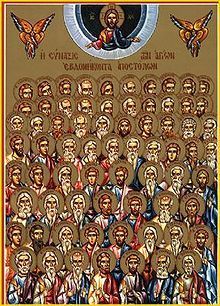Miguel Labrador's Blog, page 8
October 15, 2013
7 Debilitating Lies Of The ‘Covering Doctrine.’
 What is the “Covering Doctrine?” To put it simply, it’s the erroneous doctrine that claims all Christians must be under the authority (covering) of a church leader to be protected from the warfare of the devil and in many cases, to receive God’s blessings. It arises from the felt idea that certain Christian movements or missions are too loose and that there’s not enough accountability, credibility, and control. Over the past 3 years, I’ve probably heard the question, “Who’s your covering?” at least 50 times. Other versions of the question are; “Under what authority do you minister here?” and “Who do you answer to?” It’s as if our legitimacy can be determined by “the right answer” to such questions. Answering the question in a cavalier sort of way, for example, “Jesus/God is my authority (covering),” is assumed to be an attitude, or posture of disobedience, and often gets one forced out from under what the proponents of the covering doctrine consider a covering or “umbrella of protection.”
What is the “Covering Doctrine?” To put it simply, it’s the erroneous doctrine that claims all Christians must be under the authority (covering) of a church leader to be protected from the warfare of the devil and in many cases, to receive God’s blessings. It arises from the felt idea that certain Christian movements or missions are too loose and that there’s not enough accountability, credibility, and control. Over the past 3 years, I’ve probably heard the question, “Who’s your covering?” at least 50 times. Other versions of the question are; “Under what authority do you minister here?” and “Who do you answer to?” It’s as if our legitimacy can be determined by “the right answer” to such questions. Answering the question in a cavalier sort of way, for example, “Jesus/God is my authority (covering),” is assumed to be an attitude, or posture of disobedience, and often gets one forced out from under what the proponents of the covering doctrine consider a covering or “umbrella of protection.”
It’s one of my favorite exchanges in scripture when the chief priests, the teachers of the law, and the elders approached Jesus saying:
“By what authority are you doing these things?” and they also asked, “And who gave you authority to do this?” Jesus replied,
“I will ask you one question. Answer me, and I will tell you by what authority I am doing these things. John’s baptism—was it from heaven, or of human origin? Tell me!”
They responded, “We don’t know,” because either way their answer would have obliterated their ill conceived covering doctrine, (Mark 11:27-33) It was one of the most doctrinally disassembling questions of Jesus’ ministry. It also one of the wisest of all possible answers by those that challenged him.
Given mankind’s propensity to form hierarchical systems and structures which are diametrically opposed to Jesus’ teachings in Luke 22:25-26, Matthew 2o:25 and Mark 10:42, we have purposed to expose these 7 lies of the doctrine;
Covering encourages accountability.
Covering procures legitimacy.
Covering provides safety.
Covering encourages fidelity
Covering transfers authority
Covering ordains ministry
Covering leads to prosperity
These lies have been birthed from some fundamental and erroneous principles within the movement. Sin is redefined as disobedience to God’s authority. Grace is the power of God to obey him. All authority is instituted by God. God establishes his rule in the church through people he has delegated to “be” his authority. The 5-fold ministry (apostles, prophets, evangelists, pastors and teachers) represents God’s authority on earth. Obedience to the Lord requires obedience to God’s delegated authorities (employers, church leaders, civil authorities)
Rebellion against God’s delegated authority is rebellion against God. Rebellion to authority opens one up to the demonic realm resulting in deception. People should live by the principle of obedience rather than reason. People should always obey authority [usually the pastor] unless they are clearly instructed to violate scripture [but he is the final interpreter of scripture, so...] Spiritual authority and blessing flows to those who suffer under authority. God does not judge people on the fruit of their life but on how faithfully they followed authority. And, Those outside the local church and the covering of its leaders are at serious risk of spiritual attack. While these principles contain “bits’ of truth here and there, there are none the less misinterpreted and misapplied.*
In addition to the 7 lies listed above, I think these are 7 possible negative fruit:
Covering doctrine distorts the gospel
Covering doctrine is disobedience
Covering doctrine is manipulative, fear-driven, and abusive
Covering doctrine widens the clergy/laity divide.
Covering doctrine usurps Jesus’ authority.
Covering doctrine is idolatry.
Covering doctrine creates ungodly dependency.
Those that insist on the covering doctrine as valid and biblical teaching, can be equated with modern-day shamans, charlatans, and shysters. The doctrine itself is one of the key catalysers to the destructive property gospel and ultimately kills ministry and mission. In part II of this series, we’ll talk about 7 countermeasures to the doctrine of coverings, but I’d like to ask you a few questions:
1. Are there any truths to the covering doctrine? What are they?
2. How would you answer the question, “Who’s your covering?”
3. What lies, or results have you seen come out of those who teach the covering doctrine?
*While primarily motivated by our day to day dealings with the doctrine of “coverings” in our context, much of this post has been framed and sourced by materials found here.
(Visited 358 times, 354 visits today)














CommentsJim, I agree that elders should not lord it over their ... by wbmooreMe again. I think this has to to with taking your hat off in ... by Laurie NorrisHebrews 5:14 – But solid food belongs to those who are of ... by David Croom“Next time someone asks me “Who's your Covering,” I'm ... by Laurie NorrisGreat response! I was thinking as I was reading those questions ... by Claudia LabradorPlus 5 more...Related StoriesThe Dog Ate My Short-Term Missions Homework.Maybe Luke 10 Isn’t The Best ‘Missional’ Text.3 Words That Will Make You Re-Think Your Role In Mission
October 14, 2013
‘God is Raging in the Prophets’ Words.’ ~ Heschel
 Yesterday on twitter, I posted the
Yesterday on twitter, I posted the
following question, which ended up
getting reposted on Facebook.
Can the prophetic be practiced without polarizing people?
— Miguel Labrador (@Missionaries) October 13, 2013
Today I found this quote in Abraham Joshua Heschel’s Book, Insecurity of Freedom;
“Prophecy is the voice that God has lent to the silent agony, a voice to the plundered poor, to the profaned riches of the world. It is a form of living, a crossing point of God and man. God is raging in the prophets’ words.”
Because I dared to ask this question while the Cowboys were playing, the conversation soon went from a roar to silence. Here are some of the responses:
- Very good question.
- Ask Jonah.
- Of course it can. It depends on the audience and the context. I don’t believe it’s prophecy in and of itself that divides, but who is listening and what God is saying.
- “No.” (Ok, I can’t give a short answer!) If the prophet’s task is to alert people to the discrepancy between where we are and where God wants us, then the DISCREPANCY ITSELF forms a divide. People will line up either to defend the status quo or to embark on a quest toward God’s preferred future (as best they understand it).
- Jesus was prophetic, John too, both the Baptist and Apostle, and they all have polarized people. Not to polarize them into fear, but abundant life, so that the kingdom would grow here on earth, as established in the seed of David, but the reality is, Christ is both David’s Father and son. Love your neighbor with His Love, and spread the good news. It is finished! The power of Christ in you. Now reach over and turn on the light, for anew day has dawned!
- Can the prophetic be practiced without polarizing the prophet?
- The prophetic gift can produce inner turmoil.
- Practicing the prophetic is a gifting I’m growing into, but not one I would describe as primary for me. However, when I do walk more consistently in the gifting, I feel the inner turmoil of wanting to communicate and be received in ways that are consistent with honest motives, a hopeful heart, and helpful for the body.
- Can the prophetic be practiced without polarizing people? If not, it’s not the prophetic you’re practicing.
- The prophetic doesn’t exist in a vacuum anymore. When it functions alongside the other giftings, in the environment of the organic community, it will be welcomed. Still polarizing, but welcomed.
I wanted to create a more focused environment for this discussion to continue, and so I’ll ask again;
“Can the prophetic be practiced without polarizing people?”
(Visited 38 times, 38 visits today)














Comments1 Corinthians 14 begins with prophesy strengthening, ... by Tim DayProphets generally remind us who is in charge, or at least who ... by Laurie NorrisTo polarize is simply to reorient. The work of the prophet is ... by MorganBushRelated Stories‘Redundant Foundations…’ are the reason Apostles & Prophets don’t exist today.If the Church is built upon the foundation of apostles and prophets. Why are so many trying to build it on the foundation of pastors?Ephesians 4:11 – Who’s Sent?
October 13, 2013
Confessional Institutional Church on Sunday – Missional Organic Church Monday Thru Saturday? Is It Possible?
 I was reading a month old blog this morning and came across an interesting proposition. The author said, “
I was reading a month old blog this morning and came across an interesting proposition. The author said, “
“There is no reason why a confessional/institutional church can’t still make a big deal out of Sunday worship and then pour the rest of their resources and energy into mission and discipleship through more organic, less programmed means throughout the week.”
One Question:
Is this scenario/proposition possible?
(Visited 48 times, 48 visits today)














Commentseven the tenet of taking a weekly collection with which to do ... by MarshallI'm starting to see it at the big mega church we grew. Even ... by Kirk StephensOnly with a congregation that would be willing to give up the ... by David WoodsRelated Stories3 Words That Will Make You Re-Think Your Role In MissionMaybe Luke 10 Isn’t The Best ‘Missional’ Text.Is Discipleship Authority/Power Delegated To You by Jesus?
October 11, 2013
The Dog Ate My Short-Term Missions Homework.
 Have you done your Short-Term Missions Homework?
Have you done your Short-Term Missions Homework?
A “Forward Observer” is a military term describing a soldier who is acutely aware of the position and movements of friendly troops as well as those of opposing forces. They see the lay of the land and report where advances can be made. Observers usually work independently for long periods of time and, because the nature of their work and their frequent placement on or behind enemy lines, have the ability to operate with minimal support for longer periods of time to acquire critical mission data.
Short-term mission trips should also have forward observers. Those that “go before” in some fashion to survey the current status of where they want to bring a team to. I’ve been in the Andes Mountains Cloud Forest Region of Ecuador for over 7 years now, and have seen many short-term missions teams come and go. Some have “discovered” our presence here and have worked with us “as we go” about our local mission work. Many have come and deployed their teams without doing any homework, investigation, or forward observing. Others have discovered our presence, and for one reason or another have completely ignored it and have done their own thing regardless. It is typically a western and North American cultural weakness to be so over-confident of their abilities that they fail to assess the cultural and historical background of a situation before applying their solutions.
We certainly do not want people to seek our permission to work in the area where we are already working, and we aren’t the mission police. But, and this is a BIG BUT, isn’t it biblically prudent to survey the situation of where you or your team wants to work, Isn’t it advantageous to know something about the mission, and understand what you can about the culture and its people? Shouldn’t there be at least some homework done before entering another’s homeland?
Several things might happen when the dog eats your short-term missions homework:
A paternal attitude will saturate you and your team before you even get to your destination. You’re convinced that your agenda is the right one, your methodology is superior, and the ones you are going to “serve” need you. Mutual respect is jettisoned before the plane touches down.
The benefit is swayed towards you. It is a relatively new phenomena where those that are going on mission trips benefit more than the ones they are going to. Where there should be mutually beneficial partnerships, there are one-sided projects. If you’re honest with yourself before hand, you’ll ask “Am I following God’s call to mission and service, or am I serving my own needs to “do good?”
You do more harm than good and can damage relationships that took years to build. Dropping in and ignoring or being ignorant of what work may be already going on can cause irreparable damage. The clean up often takes more time and energy than the length of your stay.
I’m not knocking short-term missions. I think they’re valuable in many ways. Research shows that students who have taken part in short-term mission trips are less materialistic, appreciate other cultures more and better understand missions as a lifestyle. That’s good news! But, they still might be the ones who are receiving most of the benefit of these trips. So, be a student/servant of mission before you make that short-term missions trip. Even if you think you are seasoned, experienced, and knowledgeable when it comes to short-term missions, do your homework and don’t let the dog anywhere near it. If you don’t do your homework, others will. These are the dogs mentioned by Christ who are “traversing land and sea to make a single convert.” (Matthew 23:15)
A few questions:
1. What are some other results of not doing Short-Term Missions Homework?
2. What if those already working where you want to go have wacky doctrine?
3. What are some biblical examples of “Forward Observers” in mission?
(Visited 22 times, 12 visits today)














CommentsI often wonder if the expense of travel, etc. might be better ... by Tom SchultzRelated StoriesWhen Churches and Pastors Reject MissionMaybe Luke 10 Isn’t The Best ‘Missional’ Text.3 Words That Will Make You Re-Think Your Role In Mission
October 10, 2013
God The Father’s Birthing Method
 “Every good thing given and every perfect gift is from above, coming down from the Father of lights, with whom there is no variation or shifting shadow… In the exercise of His will He birthed us, or brought us forth by the word of truth, so that we would be a kind of first fruits among His creatures.” (James 1:17:18)
“Every good thing given and every perfect gift is from above, coming down from the Father of lights, with whom there is no variation or shifting shadow… In the exercise of His will He birthed us, or brought us forth by the word of truth, so that we would be a kind of first fruits among His creatures.” (James 1:17:18)
God the Father chose long ago to birth believers by the word of truth. That is by the spoken, or now written words of His Truth personified. Jesus is simultaneously messenger, medium, and message. The words themselves are the divinely appointed agent by which one is spiritually birthed.
James sets the idea of sin being birthed in us at odds with the kind of birthing that God with us. In verse 15 of the same chapter, James says, “Then when lust has conceived, it gives birth to sin; and when sin is accomplished, it brings forth death.”
Self birthing leads ultimately to death. God’s birthing of us leads to life. ”He brought us forth (birthed us) by the word (logos) of truth. The New Living Translation puts it this way, “He chose to give birth to us by giving us his true word. And we, out of all creation, became his prized possession.”
Peter puts it this way, “For you have been born again, but not to a life that will quickly end. Your new life will last forever because it comes from the eternal, living word (logos) of God.”
This “word” does not simply mean Jesus as in John 1:1 “In the beginning was the Word.” James says that its the message of Jesus which must be quickly heard (James 1:19) and received with humility (James 1:21) is the agent of our birth. When this word/message/gospel is implanted by God the Father, it induces labor. All the more reason we must preach the gospel to all creation (Mark 16:15) and preach the word (logos) at all times in various ways. (2 Timothy 4:2)
(Visited 13 times, 5 visits today)













 Related StoriesMaybe Luke 10 Isn’t The Best ‘Missional’ Text.3 Words That Will Make You Re-Think Your Role In MissionBut… Isn’t The Law Written On Stoney Hearts?
Related StoriesMaybe Luke 10 Isn’t The Best ‘Missional’ Text.3 Words That Will Make You Re-Think Your Role In MissionBut… Isn’t The Law Written On Stoney Hearts?
October 8, 2013
But… Isn’t The Law Written On Stoney Hearts?
 “In that they show the work of the Law written in their hearts, their conscience bearing witness and their thoughts alternately accusing or else defending them.” ~ Romans 2:15
“In that they show the work of the Law written in their hearts, their conscience bearing witness and their thoughts alternately accusing or else defending them.” ~ Romans 2:15
Yes, I think most of us would agree that the Law, or the “works of the Law,” are written on human hearts. But here’s the thing…
Unsaved people have hearts of stone - (Ezekiel 11:19)
That stone is “where” the Law was written – (Romans 2:15)
God removes that stone along with its inscribed Law - (Ezekiel 36:26)
God replaces that heart of stone with a heart of flesh - (Ezekiel 36:26)
The Heart of flesh is etched with a new message that is not the Law – (2 Corinthians 3:3)
If the above propositions are correct, then what are the implications?
(Visited 13 times, 13 visits today)














CommentsI think it's simply that Jesus died for us while we were yet ... by David WoodsRelated StoriesMaybe Luke 10 Isn’t The Best ‘Missional’ Text.Wholly Shift! What’s Going On In Disciple Making?Is There Anything Besides ‘The Works of the Law’ Written on People’s Hearts?
October 7, 2013
Maybe Luke 10 Isn’t The Best ‘Missional’ Text.
 Now after this the Lord appointed seventy others, and sent them in pairs ahead of Him to every city and place where He Himself was going to come. And He was saying to them, “The harvest is plentiful, but the laborers are few; therefore beseech the Lord of the harvest to send out laborers into His harvest. “Go; behold, I send you out as lambs in the midst of wolves. “Carry no money belt, no bag, no shoes; and greet no one on the way. “Whatever house you enter, first say, ‘Peace [be] to this house.’ “If a man of peace is there, your peace will rest on him; but if not, it will return to you. “Stay in that house, eating and drinking what they give you; for the laborer is worthy of his wages. Do not keep moving from house to house. ”Whatever city you enter and they receive you, eat what is set before you; and heal those in it who are sick, and say to them, ‘The kingdom of God has come near to you.’ “But whatever city you enter and they do not receive you, go out into its streets and say, Even the dust of your city which clings to our feet we wipe off [in protest] against you; yet be sure of this, that the kingdom of God has come near.’ “I say to you, it will be more tolerable in that day for Sodom than for that city. ”Woe to you, Chorazin! Woe to you, Bethsaida! For if the miracles had been performed in Tyre and Sidon which occurred in you, they would have repented long ago, sitting in sackcloth and ashes. “But it will be more tolerable for Tyre and Sidon in the judgment than for you. “And you, Capernaum, will not be exalted to heaven, will you? You will be brought down to Hades! ”The one who listens to you listens to Me, and the one who rejects you rejects Me; and he who rejects Me rejects the One who sent Me.” (Luke 10:1-16)
Now after this the Lord appointed seventy others, and sent them in pairs ahead of Him to every city and place where He Himself was going to come. And He was saying to them, “The harvest is plentiful, but the laborers are few; therefore beseech the Lord of the harvest to send out laborers into His harvest. “Go; behold, I send you out as lambs in the midst of wolves. “Carry no money belt, no bag, no shoes; and greet no one on the way. “Whatever house you enter, first say, ‘Peace [be] to this house.’ “If a man of peace is there, your peace will rest on him; but if not, it will return to you. “Stay in that house, eating and drinking what they give you; for the laborer is worthy of his wages. Do not keep moving from house to house. ”Whatever city you enter and they receive you, eat what is set before you; and heal those in it who are sick, and say to them, ‘The kingdom of God has come near to you.’ “But whatever city you enter and they do not receive you, go out into its streets and say, Even the dust of your city which clings to our feet we wipe off [in protest] against you; yet be sure of this, that the kingdom of God has come near.’ “I say to you, it will be more tolerable in that day for Sodom than for that city. ”Woe to you, Chorazin! Woe to you, Bethsaida! For if the miracles had been performed in Tyre and Sidon which occurred in you, they would have repented long ago, sitting in sackcloth and ashes. “But it will be more tolerable for Tyre and Sidon in the judgment than for you. “And you, Capernaum, will not be exalted to heaven, will you? You will be brought down to Hades! ”The one who listens to you listens to Me, and the one who rejects you rejects Me; and he who rejects Me rejects the One who sent Me.” (Luke 10:1-16)
Many models of evangelism/discipleship have been based on what’s commonly called a “Luke 10″ approach. We’ve used a similar approach, and for the most part, it seems wise. It’s hard to tell if Jesus prescribed this methodology for all future generations or if it was simply a description of what happened then in that time. Some missional folks, many of whom I admire, seem to have gotten stuck on various verses/ideas in this passage to the exclusion of others.
The Message Bible translates John 1:14 in this way, “The Word became flesh and blood, and moved into the neighborhood.” The incarnation of Jesus wasn’t a phase or temporary situation. He is still enfleshed and remains our mediator. He is still the “man” Christ Jesus, (1 Timothy 2:5) as well as the eternal Son of the Father.
If there is a point of being missional which stands above other points currently, I’d have to say it’s the idea of “moving into the neighborhood,” becoming part of it, being salt & light, and catalyzing Kingdom transformation from within it. I’ve personally seen a lot of this happening up close, and I think it’s great. The commitments people are making by moving or staying and engaging the culture of their own neighborhood’s are encouraging.
But, that’s really not what Luke 10 is all about, is it?
Jesus had been traveling around with the 12 for a while before looping around and heading back towards Jerusalem. After he had selected out 70 more people, in addition to his disciples, he gave them the message you just read above. There seems to be an immediacy to the limited and temporary commission. They were sent out as pioneers to prepare for the Lord’s own coming which was to follow them. Jesus was to going, or about to come, to the same “cities and places” where he was sending these disciples. (Lu 10:1) As Jesus’ time was drawing near to “fulfill all things,” the 70 enterd into an earnest and urgent period of activity. Yes, they were to “stay” in a particular home for as long as was appropriate, but they had a trajectory. They had an itinerary. They were not to set up shop, move into the neighborhood, learn the distinct cultural nuances, or become residents. They were, of course, on mission. They were on the mission which Jesus designated. Interestingly enough, after their return from this single missionary tour, we never again read of the Seventy.
So, maybe Luke 10 isn’t the best text to use for describing a missional life. That being said, here are a few questions:
1. What transferable principles can we draw from the Luke 10 passage that might apply to us today?
2. What is the guiding biblical principle for determining how long we should stay on mission somewhere?
3. Are there better biblical texts to describe being missional than Luke 10?
(Visited 40 times, 40 visits today)














CommentsI haven't dismissed Luke 10 from the local “moved into the ... by MarshallRelated Stories3 Words That Will Make You Re-Think Your Role In MissionWhen Churches and Pastors Reject MissionWholly Shift! What’s Going On In Disciple Making?
October 6, 2013
9 Reasons Why The Bible Isn’t Supposed To Be Easy
 1. The scriptures have been peppered with obscurities and wonderful intricacies so that we would remain in constant prayer, interpretation and discovery with its Author.
1. The scriptures have been peppered with obscurities and wonderful intricacies so that we would remain in constant prayer, interpretation and discovery with its Author.
2. God designed the scriptures to excite our diligence in reading them, meditating on them, searching through them, and comparing them with one another. The scriptures, rightfully approached keeps us from being lazy and negligent.
3. The scriptures were constituted in such a way as to prevent our losing interest in them. We are a people who grow weary of easy things. God infused the texts with an infiniteness of difficulties to keep us from being bored and dismissive.
4. God willed that we should labor intensively to lay hold of these sublime and heavenly truths so that we would esteem them accordingly. Though for a time we might enjoy what comes easy, human nature tends to despise and have contempt for that which is effortlessly acquired, near at hand, and comes at little cost. In the end, we appreciate those things in proportion to how hard we’re willing to exert ourselves.
5. God has architected the scriptures in such a way as to subdue our pride, arrogance, and ignorance. We are apt to think too honorably of ourselves, and to rate our genius and acuteness more highly than is fitting, and to promise ourselves too much from our science and knowledge.
6. God has also willed that the sacred mysteries of his word should be opened freely to pure and holy minds and not exposed to dogs and pigs. There will therefore be things which are easy to holy persons and profane parables to others. The jewels and mysteries of scripture are of great value, beautiful and excellent, to those that know them and despised and rejected as worthless objects by those that refuse to.
7. God has formed the scriptures in such a way as to call off our minds from the pursuit of external things and our daily distractions, and transfer them to the consideration of the scriptures. It is essential to give time to their perusal and study; which is something we certainly would not do, if we found every thing in it plain and open.
8. God has conceived the scriptures in such a way as to renew our thoughts and feelings.
9. God has willed that in the church that there should be some as teachers, evangelists, apostles, evangelists, and pastors to equip, mature, and transform the body via the communication and demonstration of His word.
* These 9 reasons have been adapted from “Disputations on Holy Scripture” by William Whitaker. Whitaker lived from 1548 to 1595.
(Visited 66 times, 66 visits today)














Commentsfunny. all this doubt for what would be the invitation! by MarshallCool, cool. by David WoodsAnd this too is scripture? Holy Spirit inspired? By Love? ... by Kirk StephensRelated Stories3 Words That Will Make You Re-Think Your Role In MissionFracturing The Logos of the Gospel – Part IIIs Discipleship Authority/Power Delegated To You by Jesus?
October 2, 2013
Is Your Church Facilitating Assault On People And Calling it ‘Evangelism?’
 In his book, Psychology for Successful Evangelism, James H. Jauncey once said;
In his book, Psychology for Successful Evangelism, James H. Jauncey once said;
”Just buttonholing a stranger, witnessing to him and pressing for a decision will likely do more harm than good. Most responsible people react negatively and often quite violently to this kind of assault. It shows a fundamental lack of respect for human dignity and personality.”
Is he right?
(Visited 54 times, 54 visits today)














CommentsI do very much agree with this thought. I had a friend who was ... by Tim BakerRelated Stories3 Words That Will Make You Re-Think Your Role In MissionIs Discipleship Authority/Power Delegated To You by Jesus?Wholly Shift! What’s Going On In Disciple Making?
October 1, 2013
3 Words That Will Make You Re-Think Your Role In Mission
“Apostle,” “Apostasy,” and “Resurrection,”
could make you re-think your role in mission.
Here’s why;
Apostle (Apo-Stello) There are over 80 occurrences of the Greek word apostolos in the NT, mostly in Luke and Paul. It derives from the very common prefix “apo” (out from) and the verb “stellō” which means “to send.” In NT it is applied to Jesus as the Sent One of God (Hebrews 3:1), to those sent by God to preach to Israel (Luke 11:49) and to those sent by churches (2 Corinthians 8:23; Philippians. 2:25)
Apostellō seems frequently to mean ‘to send with a particular purpose,’ the force of apostolos is probably ‘one commissioned’ ~ it is implied, by Christ.
All believers comprise the Apostolate because all believers are sent. It is reasonable to think that all believers are apostolic-ally accountable for their sent-ness. (Luke 9:10) (John 17:18)
So the prefix “apo” or “ap” means – from, off, or away from. Combined with “stello” - to get set, place things in order, arrange, and equip to be sent.
More simply put, “Apo” (Separated out) & “Stello” (to be sent) “ Separated out to be sent, ” is having a Christlike sent-ness and to be separated out like Christ and sent. “Therefore, holy brethren, be partakers of the heavenly calling, and “consider” (meditate, dwell on, be infused with life changing thought leading to action) Jesus, the Apostle and High Priest of our confession.” (Hebrews 3:1)
Apostasy (Apo-Stasia) We already know that “apo” means ~ “to be separated out from,” but “Stasia” is where we get our english word “stasis.” For you Sci-fi geeks out there, you know when someone is put in stasis, usually because of a grave or life threatening injury, they are immobilized, set still, and artificially sustained until such a time as something can be done. To be in stasis is to be sedentary or motionless. An example of “stasis” from scripture is when Peter “falls into a trance” in Acts 10:10. The word “trance,” is exstasis in the Greek and is most similar to our word “ecstasy.” Of course, being held still by God and having all of our attention captivated by Him is a good thing. But there is a fear that paralyzes one into an evil sort of ecstasy. (Mark 16:8)
We often equate apostasy with teaching false doctrine or rejecting biblical truths. That’s part of it. But, what if its meaning was more insidious than that? What if it meant something else? If we take a second look at the word as “apo” and “stasis,” together, then it could very well mean being separated out for the purpose of being put in stasis or “immobilized.” In other words, rejecting sent-ness and embracing a sedentary state is apostasy. Another way of saying apostate is “being mission-less.”
“Some will fall away from the faith, “inappropriately focusing attention on” deceitful spirits and doctrines of demons, they will be “seared” (encased) (put in stasis) in their own conscience, they will “forbid” things and “advocate abstaining” from things which God has created to be gratefully “shared in community” by those who believe and know the truth. They will “reject” the things that God has created for His purposes and sanctified to be received and “exercised” with gratitude.” (1 Timothy 4:1-4) Paraphrase mine…
Apostasy then, is sort of a self disfellowship that leads to being mission-less and motionless, an attachment to detachment, or an unsanctified stationary posture. Apostasy is missional paralysis. Apostasy is un-sent-ness.
Forgive me for being too geeky or should I say Greeky, but these thoughts were inspired by a conversation I had with my friend Tim Catchim . It caused me to lose a lot of sleep for which I blame him and am grateful for. Thank you for reading up to this point. You can subscribe to this blog for similar posts and mission oriented discussions . But, here comes the “punch line…”
Resurrection (Ana-Stasis) The Greek prefix “ana” means – up, back, again, upside down, or back again. We already know what stasis means, but I’ll add that it implies a sinful and willful motionless or passivity. So putting the greek root words together for “resurrection” (Ana-Stasis), it would mean rising up, inverting, returning, or coming back to a state of movement in life, community, and mission against stasis. It is the opposite direction of apostasy. It is the counter-measure to apostasy, and the solution to a sedentary, sacrilegious, and sinful stillness. It is the appropriating of Christ’s resurrection and ours.
“You have been raised up with Christ, keep seeking the things above, where Christ is, seated at the right hand of God. Set your mind on the things above, not on the things that are on earth. For you have died and your life is hidden with Christ in God… Whatever your mission is in word or deed, do all in the name of the Lord Jesus, giving thanks through Him to God the Father. (Colossians 3)
Rejecting mission… God’s mission, is the path to apostasy. Resurrection, Christ’s and ours, is the solution.
Believer, live in a posture of resurrected, apostolic, and communal sent-ness and you will guard yourselves well from apostasy.
Therefore, holy brethren, be partakers of the heavenly calling, consider Jesus, the Apostle and High Priest of our confession…
(Visited 158 times, 14 visits today)














CommentsThat was incredible insight. God resurrect us, your church! by David George MontalvoWow. Thanks! by Jim WrightRelated StoriesWhen Churches and Pastors Reject MissionWholly Shift! What’s Going On In Disciple Making?A Missiorganic View of the Church




